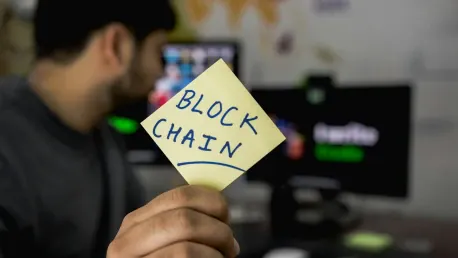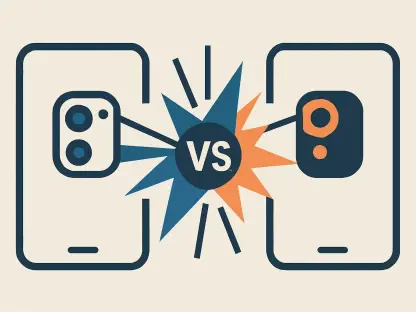ZetaChain, a layer 1 universal blockchain renowned for its interoperability, is taking significant strides in reinforcing its infrastructure and scalability by securing major global enterprises as validators. Industry giants such as Google Cloud, Deutsche Telekom through Telekom MMS, NTT Digital, Coinbase, and Alibaba Cloud have now joined as validators, a move set to bolster ZetaChain’s vision of a unified blockchain ecosystem. The involvement of these powerhouses is poised to enhance the overall framework, contributing significantly to the blockchain’s decentralized nature.
Transforming Blockchain Ecosystems
Integration Across Major Blockchains
ZetaChain aims to revolutionize blockchain integration by providing universal decentralized applications that connect various blockchain networks like Bitcoin, Ethereum, Solana, and Sui natively. This approach eliminates the complexity and risks associated with traditional crypto bridges or wrapped assets, offering a seamless experience for developers and users alike. The primary objective is to facilitate direct interactions with native assets across multiple blockchains, simplifying cross-chain transactions.
The role of these validators extends beyond mere support; they are integral in realizing ZetaChain’s ambitious vision. By enhancing security and operational efficiency, companies like Google Cloud contribute their robust infrastructure to safeguard the network. Meanwhile, Deutsche Telekom’s enterprise-grade Open Telekom Cloud (OTC) and Alibaba Cloud’s Spark web3 program deliver essential infrastructure support, ensuring reliability and performance. NTT Digital and Coinbase also bring their unique strengths, marking a collaborative approach to advancing blockchain technology.
Enhancing Developer Capabilities
The announcement of these validators coincided with the launch of The Open Network (TON) and Sui (SUI) testnets, providing developers with an expanded toolkit to deploy smart contracts across significant blockchains. This capability is a game-changer, allowing access to native assets on blockchains like Bitcoin, Ethereum, and Solana without intermediaries. The integration of these testnets represents a step forward in simplifying the creation and execution of cross-chain decentralized applications (dApps).
Coinbase’s integration with ZetaChain exemplifies a multi-faceted approach, supporting the Ethereum layer 2 platform Base while also running a native validator. Furthermore, Coinbase enables the staking of ZETA tokens, an essential functionality for the ecosystem’s growth and stability. Google Cloud’s involvement is multifaceted as well, providing security measures and integrating a testnet faucet for developers. These contributions are pivotal in creating a more secure and user-friendly environment for blockchain developers.
Implications of Validator Participation
Impact on ZETA Token and Network
The participation of high-profile enterprises as validators has had a noticeable impact on the ZETA token, illustrating the market’s optimistic response. Following the announcement, the ZETA token price witnessed a sharp increase from $0.21 to $0.40 before stabilizing around $0.32 due to profit-taking. This price movement reflects market confidence in ZetaChain’s enhanced infrastructure and the anticipated long-term benefits of these partnerships.
The introduction of validators from esteemed enterprises is not merely a superficial development but a significant advancement in ZetaChain’s journey towards a fully decentralized and interoperable network. These validators are expected to ensure enhanced scalability, security, and decentralization, addressing key challenges in the blockchain ecosystem. Their involvement signals a broad consensus on the necessity of a unified blockchain network and ZetaChain’s potential to lead this transformative effort.
Collaborative Efforts and Future Prospects
The collaborative effort among these enterprises marks a pivotal moment for blockchain interoperability. Each validator brings a unique set of strengths and resources, collectively driving ZetaChain towards achieving its vision. This partnership model promotes a more decentralized and resilient infrastructure, setting a precedent for future blockchain innovations. It underscores the industry’s commitment to overcoming traditional barriers through collective efforts.
Looking ahead, ZetaChain’s progress illustrates the importance of strategic partnerships in achieving technological advancements. The involvement of leading enterprises not only validates ZetaChain’s approach but also enhances its capacity to innovate and expand. As the network grows, the role of validators will continue to evolve, playing a crucial part in supporting both current operations and future developments.
The Path Forward
ZetaChain, a leading layer 1 universal blockchain, is making remarkable progress in enhancing its infrastructure and scalability by securing major global enterprises as validators. Industry heavyweights such as Google Cloud, Deutsche Telekom via Telekom MMS, NTT Digital, Coinbase, and Alibaba Cloud have joined the roster of validators. This move is expected to significantly bolster ZetaChain’s vision for a unified blockchain ecosystem. The participation of these high-profile companies will likely improve the overall framework, making substantial contributions to the blockchain’s decentralized nature. By involving such prominent players, ZetaChain aims to solidify its position and ensure the network’s reliability, security, and functionality. This collaboration is anticipated to advance the broader adoption of blockchain technology, showcasing the commitment and trust of these industry leaders in ZetaChain’s mission to create an interoperable and cohesive blockchain infrastructure.









